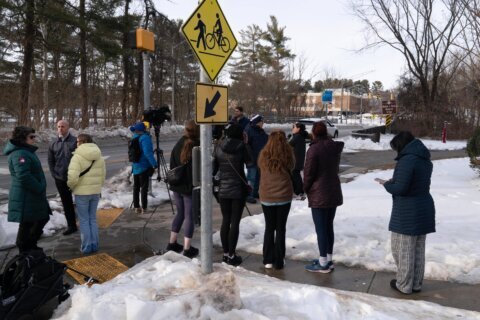Last year, though strong growth was projected in hiring, the class of 2021 graduated into what some experts considered a recession. The situation looks much better for 2022 college grads, with the National Association of Colleges and Employers projecting a 31.6 % increase in college hiring. In early May, NPR described the job market for college seniors as “booming,” citing a “hot labor market” that has students “accepting job offers months before they graduate,” boding well for this year’s crop of entry-level employees.
That said, it’s still going to be important to look for jobs in fields that are likely in need of new workers. According to the BLS, private service-providing fields including health care, social assistance, leisure and hospitality, finance and government all added more jobs this spring. These are great industries for today’s college grads to target their search for jobs after college.
[See: The 25 Best Jobs of 2022.]
If you’re wondering what to do after college, the following 10 jobs are projected to be great ones to target in the current economic climate. Data below comes from the BLS.
— Registered nurse.
— Data scientist.
— Software developer.
— Market research analysts.
— Respiratory therapists.
— Financial managers.
— Medical and health services manager.
— Statistician.
— Information security analyst.
— Actuary.
Registered Nurse
Median Salary: $75,300 Typical entry-level education: Bachelor’s degree
Nursing has long been considered a recession-proof occupation. At the entry level, a bachelor’s degree in nursing will allow you to become a registered nurse, as will an associate degree in nursing or even “a diploma from an approved nursing program,” according to the BLS. You must be licensed to work as an RN.
Learn more about registered nurses.
Data Scientists
Median Salary: $98,230 Typical entry-level education: Bachelor’s degree
At the entry-level, college students can improve their chances to land a data scientist job after graduation by starting with a data science internship during college. The key is to have relevant hands-on experience — so in addition to your bachelor’s degree, you can beef up your resume by joining a group like Code for America, where you can get your feet wet in the field by participating in a hackathon.
Learn more about data scientists.
Software Developer
Median Salary: $110,140 Typical entry-level education: Bachelor’s degree
A great thing about targeting a software developer role as a new college grad is that practical experience and passion for problem solving are as important to many employers as proficiency in computer science. You can grease the wheels to a better resume in this field by taking an intro to JavaScript, writing code and proving you can solve technical problems at a basic level.
Learn more about software developers.
Market Research Analysts
Median Salary: $65,810 Typical entry-level education: Bachelor’s degree
Most industries rely on accurate market research to sell their products and services, making an entry-level market research analyst position an excellent choice for a recent grad looking for jobs after college, since hires take place in many settings throughout the economy. While you won’t need work experience in a related occupation according to the BLS, having strong math and analytical skills is essential to employers hiring for this role. Market research analysts have a much more favorable job outlook than average, with a projected 22% growth rate through 2030.
Learn more about market research analysts.
[See: 25 Best Jobs That Pay $100K.]
Financial Managers
Median Salary: $134,180 Typical entry-level education: Bachelor’s degree
With the BLS projecting over 17% growth rate in this field through 2030, an entry-level financial management position is a smart choice for grads whose talents include not only working with numbers and understanding complex reports, but communication skills. If you can break into a bank or large organization in this competitive industry, you’ll be on track for a management role as you move up and take on financial oversight.
Learn more about financial managers.
Respiratory Therapist
Median Salary: $62,810 Typical entry-level education: Associate’s degree
This position requires only an associate’s degree and is projected to see 23% employment growth through 2030, according to the BLS. With COVID-19 now added to the list of conditions that affect breathing, respiratory therapists will be in high demand for the foreseeable future.
Learn more about respiratory therapists.
Medical and Health Services Manager
Median Salary: $104,280 Typical entry-level education: Bachelor’s degree
Health care administration will continue to be another area of major growth over the next decade. The BLS projects that the entry-level role of medical and health services manager will balloon 32% through 2030, and the job offers a way for new grads to potentially make six figures right out of the gate. The role involves planning, directing and coordinating business activities of health care organizations. Many types of health care facilities — such as hospitals, group medical practices and nursing homes — hire medical and health services managers.
Learn more about medical and health services managers.
Statistician
Median Salary: $92,270 Typical entry-level education: Master’s degree
Statisticians — along with mathematicians — are also on the BLS list of fastest-growing jobs. This big-data job focuses on data analysis and applying statistical and mathematical techniques for industry problem-solving. Key industries that hire statisticians include science companies, engineering research firms and the federal government.
Learn more about statisticians.
[READ: How College Clubs Can Lead to Careers.]
Information Security Analyst
Median Salary: $103,590 Typical entry-level education: Bachelor’s degree
Cybersecurity roles are only increasing in importance, as new innovations in technology need to be secured. An information security analyst helps plan and execute security measures to ensure that corporate networks and systems aren’t compromised.
Learn more about information security analysts.
Actuary
Median Salary: $111,030 Typical entry-level education: Bachelor’s degree
Jobs that process and analyze big data will be in particular demand. An actuary is an occupation in mathematical science that is responsible for using statistics and financial theory to determine the cost of risk — for example, in an insurance company. The BLS projects rapid growth rate of about 24% from 2020 to 2030 for this field, much faster than average for all occupations.
Learn more about actuaries.
More from U.S. News
10 Best Part-Time Jobs to Pay the Bills
The Best Jobs That Help People
Job Outlook for Recent College Graduates originally appeared on usnews.com
Update 05/26/22: This story was published at an earlier date and has been updated with new information.







